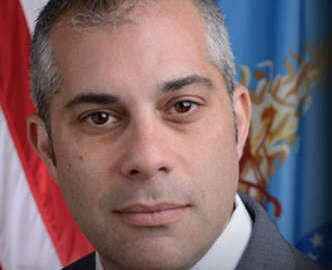
Lawyers question Interior SES reassignments, as the IG opens an investigation
A group of lawyers is encouraging the Office of Special Counsel to take special notice of the senior executive reassignments at the Interior Department, out of fear...
More than a dozen lawyers are raising questions over the Interior Department’s series of senior executive reassignments — out of fear the agency’s recent moves hearken back to a time when the civil service statutes that currently protect the federal workforce and Senior Executive Service from retaliation and undue politicization didn’t exist.
On behalf of 13 other lawyers and scholars across the country, two leaders at the Georgetown University Law Center’s Institute for Constitutional Advocacy and Protection are urging the Office of Special Counsel to pay close attention to a case from Joel Clement, a senior executive at the Interior Department, who filed an official whistleblower complaint about his SES reassignment.
The group says Clement’s case, in particular, gives OSC an opportunity to define and respect the legal limits of the civil service and SES.
“Relatively early into a new administration, a place like the Office of Special Counsel could mark out the lines that we think are so important, mark out those lines between entirely permissible reassignment of [the] Senior Executive Service … and the impermissible ones,” Josh Geltzer, executive director of the institute and a visiting professor at Georgetown University, said in an interview.
If situations like Clement’s are allowed to continue, the group said, they pose a “considerable threat to the department, executive branch and government” in general.
“If allowed to stand, these initial reassignments will denigrate both and, at the same time, embolden the current administration to continue to push the boundaries of acceptable personnel practices,” the scholars wrote in an Aug. 24 letter to acting Special Counsel Adam Miles.
Their letter comes after the Interior Department’s Office of Inspector General began an initial investigation of the “methodology and criteria used to reassign executives,” according to Deputy IG Mary Kendall. Kendall wrote to the eight Senate Energy and Natural Resources members who specifically asked that an inspector general review the department’s actions.
The group says Clement’s case, in particular, is worth OSC’s time and attention. His complaint, and the reassignments in general, may have broad and potentially dangerous implications for the future of the civil service, the lawyers said.
Clement was one of 30-to-50 senior executives who received reassignment letters from the Interior Department on June 15 — with little notice from agency leadership and no stated reason for the move.
As the now former director of the Office of Policy Analysis, Clement supervised two dozen employees and played a key role in Interior’s climate change response. He specifically worked with Alaskan coastal areas to prepare them for the impacts of climate change, which scientists predict may completely wash away those communities.
“[There] appears to be an administration uninterested in inherited wisdom, whatever they might want to do with it, uninterested in even hearing it and … seeking to punish those whose job it is to share that wisdom,” Geltzer said.
Interior reassigned Clement to a new position with no relation to his prior work and expertise. He’s now a senior adviser at the department’s Office of Natural Resources Revenue.
Clement told Federal News Radio his colleagues at his new office were just as surprised as he was to learn of his reassignment. He said he has hundreds of hours of training and staff time ahead of him to learn completely new skills. He predicts it’ll be a costly and time-consuming process that will require several trips to Denver.
Like Clement, other senior executives told Federal News Radio they had no insight into the department’s decision to reassign them to new positions. Their reassignments have them feeling demoralized and undervalued, particularly as the agency begins a major effort to restructure and reorganize.
Multiple senior executives also said they were of aware of Interior’s reorganization plan, though leadership submitted a draft version of it to the White House earlier this summer.
The group of lawyers said if Interior’s motives for the reassignments were, in fact, to promote agency efficiency, the department and OSC should make their intent public.
The scholars did not state whether, in their opinion, Interior violated any specific statutes that govern permissible SES reassignments. They acknowledged that the SES was intended to serve as a “mobile corps” of highly experienced leaders.
“It is clear that the recent reassignments within DOI are, at a minimum, in tension with the [Civil Service Reform Act]’s purpose and endanger the advantages the Congress intended to bestow on the operation of the executive branch by providing for an independent SES,” they wrote.
Copyright © 2025 Federal News Network. All rights reserved. This website is not intended for users located within the European Economic Area.
Nicole Ogrysko is a reporter for Federal News Network focusing on the federal workforce and federal pay and benefits.
Follow @nogryskoWFED





